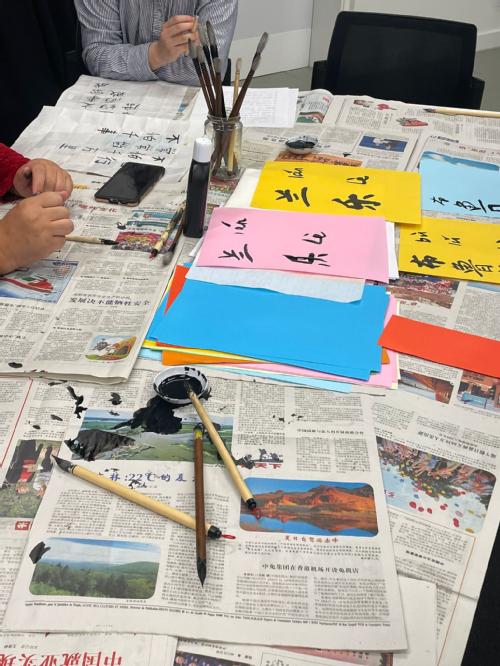Arts Faculty News
FAB shortlisted for 2023 Stirling Prize for Building of the Year
The Faculty of Arts Building (FAB) has been shortlisted for the 2023 Stirling Prize for Building of the Year. The FAB is shortlisted alongside six other national winning building projects. It is the only contender outside London.
The winner of the RIBA Stirling Prize 2023 will be announced live in Manchester at the Stirling Prize ceremony on 19 October 2023.
Year 12s experience week in the life of studying at University of Warwick
On Tuesday 25th to Friday 28th July, 91 Year 12 students from across the country to take part in a 4 day, 3 night residential on campus as part of the Sutton Trust Summer SchoolLink opens in a new window. This year we offered students 7 different subject areas, including 2 Arts Faculty focused subject streams, Classics, History of Art, and Film & Television Studies & Politics, Liberal Arts & History.
Congratulations to all applicants confirming places this week
Congratulations to all applicants who are confirming places on courses in our Arts departments this week. We look forward to meeting you in the very near future at Welcome Week.
Now available: Arts Faculty Inclusive Education Report 2023
“Inclusive education is at the heart of everything we do in the Faculty of Arts. We have some excellent practice to share and creative ways of moving forward in partnership with staff and students." Sarah Richardson, Chair of the Faculty Education Committee & Deputy Chair of the Faculty of Arts
Ancient Athenian Democracy
BBC Radio Four spoke to Warwick’s Pro-Vice-Chancellor and Classical historian Professor Michael Scott, who discussed Ancient Greece and Athenian democracy.
University of Warwick welcomes schools for FABFest 2023
FABFestLink opens in a new window took place on Wednesday 28th June, welcoming over sixty pupils from five Coventry and Warwickshire secondary schools to the Faculty of Arts Building. The day was targeted at Year 8 students (aged 12 to 13 years old), with the aim of allowing students to experience and explore a range of subjects and to inspire students to think about future subject choices in the Arts and Humanities.
Etone College, one of the schools that attended has shared a fantastic blog describing their experiences of attending: https://www.etonecollege.co.uk/university-of-warwick-fabfest/

Warwick Numismatic Day 2023 – Imitations of Ancient Coins and their Function
Ancient Numismatics, the study of ancient coinage, is a research strength of Warwick’s Department of Classics and Ancient History. The Department is an international hub in numismatics with three staff members, experts in the field, embedding their research in the wider context of Ancient History, Classical Archaeology and Ancient Economy.
The Warwick Numismatic Day has been an annual event since 2010, assembling specialists, including young researchers and students, as well as members of a wider audience, such as collectors, to share and discuss papers around topics on ancient Numismatics https://warwick.ac.uk/fac/arts/classics/research/interests/numismatics/numismaticday/. After a two-year break due to the pandemic, this year’s workshop saw the return of the 11th Numismatic Day, dedicated to imitations of ancient coins and their functions https://warwick.ac.uk/fac/arts/classics/research/money-and-medals/events/
This was the perfect opportunity to mark the move of the prestigious Money and Medals Network (MMN) from the British Museum to the Department in August 2022, an institution offering training and advice to c. 240 museums and other institutions in the UK holding coins in their collections. This time the two events were scheduled together with the Numismatics Day on the 16th June and the first MMN Training Day on the 15th June.
History of the NHS: BBC CWR Interview
The NHS celebrates its’s 75th anniversary this year. From birth to death, and everything in between, the NHS is there throughout most of our lives. But what do you think was one of the biggest causes of death in the UK before the NHS came into being? Diseases? Childbirth? Leukaemia? BBC CWR Reporter Tom Cooke has been out to meet Professor Roberta Bivins from the Centre for the History of Medicine in Warwick's Department of History, who has been looking at the impact that the NHS has had on UK society and reveals what the biggest killer of people was before we had the NHS.
A Better World Than This: Shakespeare and Poland
Stratford Herald reported on the cultural insights revealed at the Shakespeare and Poland Festival gala concert for Ambulance Aid which took place at Stratford Town Hall on Sunday evening. The event included a lecture by Tony Howard, Emeritus Professor of English and Comparative Literature at the University of Warwick, entitled A Better World Than This: Shakespeare and Poland.
Indiana Jones: A Role Model?
Professor of Classics and Ancient History Professor Michael Scott shares stories of eight ground-breaking archaeological finds and explains why he has a love-hate relationship with Indiana Jones.

